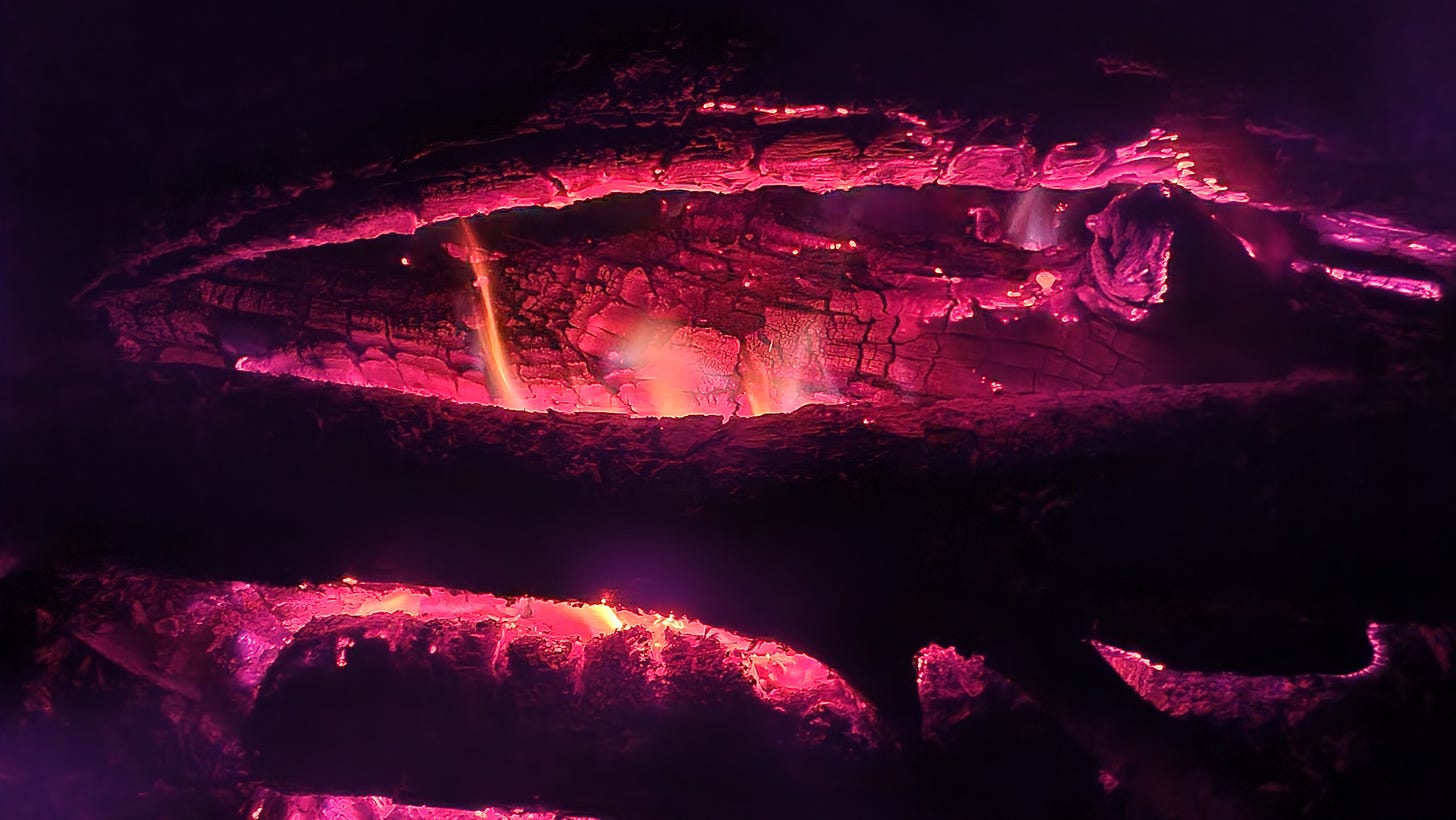Like blue flame on a log long burned
when all its strength is nigh returned
to earth and lingers wreathed in ghostly blue—
so to youth’s end men cling.
Then something breaks, dim casket splits,
cracks embered-orange and swiftly lit
within—brightleaping passion surges, yearns
to burn as once before
flame harrowed it to ashen end—
when grey creeps in, no flame can mend.
It’s mercy to have reached the last low glow,
to slow, to dim, to rest.Title after Rainier Maria Rilke’s poem, Go to the Limits of Your Longing1
This poem is written in a Welsh form called byr a thoddaid. According to Google, that means “short and dissolved.” It’s based on these rules:
Each stanza consists of two couplets – one with 8 syllables in each line and one with 10 syllables in the first line and 6 syllables in the second line.
These couplets can be placed in any order. I’ve chosen to place the twin 8-syllable lines first.
The 8-syllable lines end-rhyme (A).
The 10-syllable line has a rhyme (B) near the end of the line.
The 6-syllable line has an early link (rhyme or alliteration, etc.) to the end word of the 10-syllable line and ends with the (B) rhyme.
As usual when dealing with Welsh forms, there is no prescribed meter.
The poetry here is always free to read, but I do offer paid subscription options for anyone who would like to support my work.
If you wish to show your support but a paid subscription is out of reach, you can simply buy me a coffee and help me stay awake so I can write more.
Whether or not you choose either of these options, I’m grateful that you’ve chosen to spend time here. Your presence is support enough!
This poem was generated by the author’s human mind. No AI chatbot was used.
If you’re interested, here’s the poem referenced in the title.
“Go to the Limits of Your Longing”
by Rainer Maria Rilke
God speaks to each of us as he makes us,
then walks with us silently out of the night.
These are the words we dimly hear:
You, sent out beyond your recall,
go to the limits of your longing.
Embody me.
Flare up like flame
and make big shadows I can move in.
Let everything happen to you: beauty and terror.
Just keep going. No feeling is final.
Don't let yourself lose me.
Nearby is the country they call life.
You will know it by its seriousness.
Give me your hand.



I love this form. It's got a lovely tightness to it in those careful internal rhymes, a delightful chiastic structure, but a kind of looseness as well in that if has an almost conversational feel.
The image of the burning log is a good metaphor very finely realized with the various stages of a fire slowly dying, I especially appreciate the moment when it cracks open and flares with a lovely rush before sinking to coals:
" dim casket splits,
cracks embered-orange and swiftly lit
within"
I can hear the sharp cracks of all those short-i sounds.
And the poem feels like it's answering Dylan Thomas's rage against the dying of the light in Do Not Go Gentle. That ending is breathtakingly gentle: "It’s mercy to have reached the last low glow,
to slow, to dim, to rest."
“It’s mercy to have reached the last low glow.” — very delicately put, Mark. Seems you may have an affinity for Welsh poetic forms. May I ask what draws you to them?